Thinking outside the box to fabricate customized 3D neural chips
Powered by WPeMatico
Powered by WPeMatico
Powered by WPeMatico
Powered by WPeMatico
Powered by WPeMatico
Powered by WPeMatico
Powered by WPeMatico
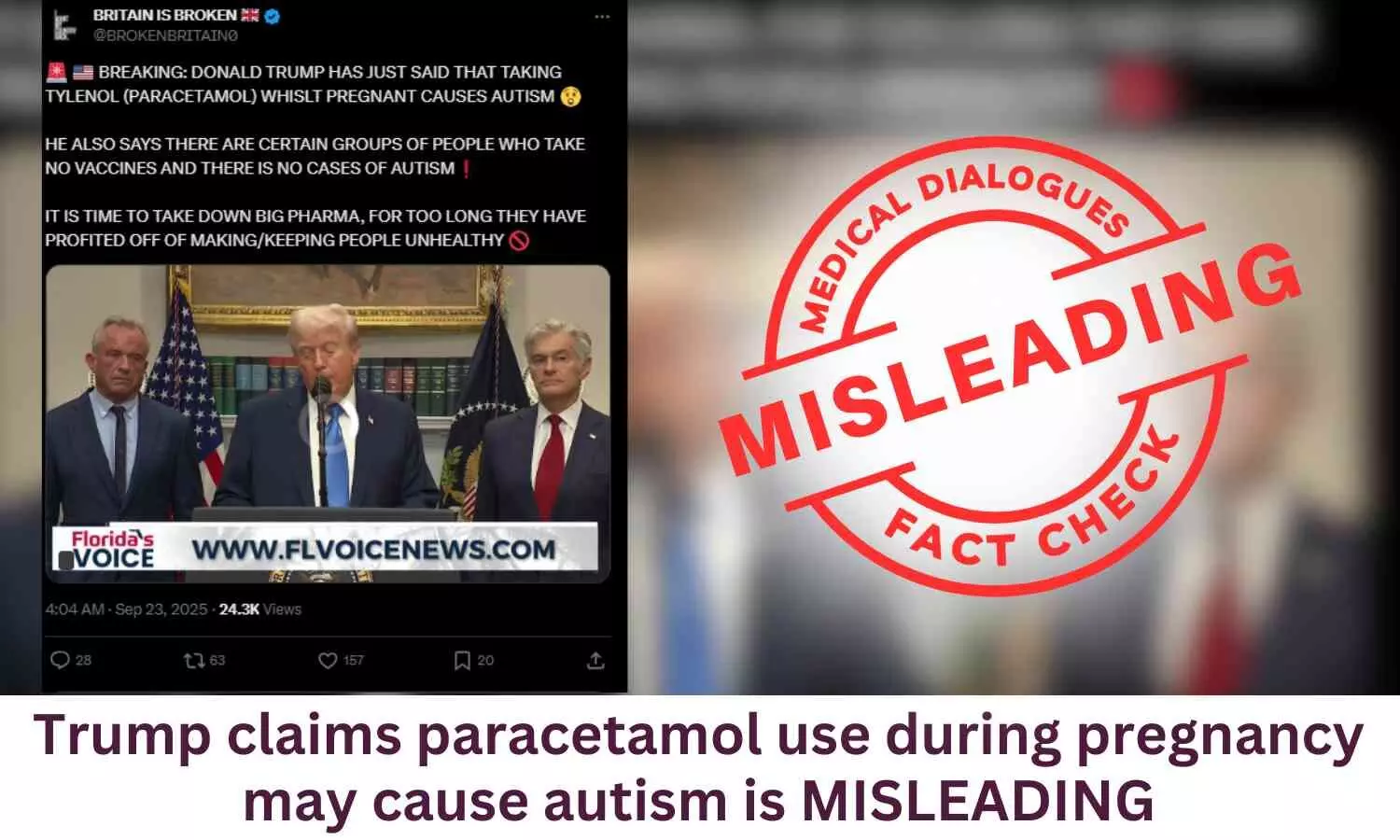
The recent announcement by US President Donald Trump’s in a video has created shockwaves claim that using acetaminophen (Tylenol/Paracetamol) during pregnancy may cause autism. While this statement appears alongside recent FDA statement on label change on acetaminophen, the claim itself is misleading and exaggerated. Current scientific evidence does not establish a direct causal link, and presenting it as such risks spreading unnecessary fear among the public.
In a recent video, US President Donald Trump said that pregnant women should not take paracetamol. He goes on to add it should also not be given to children.
In the video he says, “First, effective immediately, the FDA will be notifying physicians at the use of well, let’s see how we say that. Acetaminophen. Acetaminophen. Is that okay?
which is basically commonly known as Tylenol during pregnancy can be associated with a very increased risk of autism. So taking Tylenol is uh not good. All right, I’ll say it. It’s not good.
For this reason, they are strongly recommending that women limit Tylenol use during pregnancy unless medically necessary. That’s for instance in cases of extremely high fever. That you feel you can’t tough it out, you can’t do it. I guess there’s that. It’s a small number of cases, I think. But if you can’t tough it out, if you can’t do it, that’s what you’re going to have to do.
You’ll take a tylenol, but it’ll be very sparingly. Can be something that’s very dangerous to the woman’s health. In other words, a fever that’s very very dangerous and ideally a doctor’s decision because I think you shouldn’t take it and you shouldn’t take it during the entire pregnancy. They may tell you that toward the end of the pregnancy, you shouldn’t take it during the entire and you shouldn’t give the child a Tylenol every time he goes. He’s born and he goes and has a shot.
You shouldn’t give a Tylenol to that child. All pregnant women should talk to their doctors for more more information about limiting the use of this medication while pregnant. So ideally, you don’t take it at all, but if you have to if you can’t tough it out or if there’s a problem, you’re going to end up doing it. The other thing that I can tell you that I’ll say that they will maybe say at a little bit later date. But I think when you go for the shot, you do it over a five-time period.”
The video can be accessed here and Here
The claim by the user is MISLEADING, as current scientific evidence remains inconclusive and does not confirm any direct causal relationship between consumption of paracetamol in pregnancy and autism in chidlren . While the FDA has issued guidance on cautious use it also itself specifies about the documented side effects of other options such as aspirin and ibuprofen adding that that acetaminophen is the only over-the-counter drug approved for use to treat fevers during pregnancy.
The claims made in the US President’s speech exaggerate the risk misrepresenting the actual scientific consensus and may lead to public confusion.
Pregnancy is the stage when a fetus grows inside a woman’s uterus, lasting about 40 weeks and divided into three trimesters. It begins with conception, when a sperm fertilizes an egg, creating a zygote that attaches to the uterine lining. During the second trimester (weeks 13–28), fetal movements are typically felt by week 20, and by week 24, unique fingerprints have formed. By week 28, premature babies have a 92% chance of survival, though health risks remain. In the third trimester (weeks 29–40), the baby’s bones are nearly developed by week 32, and infants born at full term (weeks 39–40) generally experience the best health outcomes. Babies born between weeks 37–38 are classified as “early term,” while those delivered after week 42 are considered “post-term.”
Autism, also known as autism spectrum disorder (ASD), encompasses a wide variety of conditions that involve difficulties with social interaction, repetitive patterns of behavior, as well as challenges in speech and nonverbal communication. The Centers for Disease Control and Prevention (CDC) estimates that autism currently affects about 1 in 36 children and 1 in 45 adults in the United States.
The experiences and capabilities of individuals with autism differ greatly. While some are able to live independently, others may need lifelong care and support. Autism can have a substantial impact on access to education and employment, and it often places significant responsibilities on families and caregivers. Quality of life is also shaped by societal perceptions and the degree of assistance provided by both local and national systems.
According to the World Health Organization (WHO), many people with autism experience additional conditions such as epilepsy, depression, anxiety, and attention deficit hyperactivity disorder. They may also exhibit challenging behaviors, including sleep difficulties and self-injury. Intellectual abilities within the autistic community vary widely, ranging from profound disability to exceptional levels of functioning.
Paracetamol ( also known as Acetaminophen and sold under brand name Tylenol in US) is a widely used analgesic and antipyretic medication for relieving pain and reducing fever. After oral or intravenous administration, it acts quickly (within 30–60 minutes orally; 5–10 minutes IV) and lasts for about 4–6 hours. It is metabolized in the liver and rarely excreted unchanged. Common side effects include nausea, vomiting, and rectal irritation. It is available in multiple forms, including tablets, capsules, syrups, suspensions, elixirs, and injections.
Donald Trump claimed in a video that pregnancy women should not take acetaminophen (Tylenol/Paracetamol) during pregnancy. This statement is misleading and exaggerates the association between acetaminophen or paracetamol consumption during pregnancy and autism in children. There are indeed some studies that have suggested a possible link between prenatal acetaminophen use and attention-related issues in children, there is no strong or conclusive evidence that it causes autism.
A consensus statement in Nature Reviews Endocrinology warns that while paracetamol (acetaminophen) is widely considered safe in pregnancy, emerging evidence links prenatal use to risks such as autism, ADHD, and other developmental disorders. Experts recommend using it only when necessary, in the lowest effective dose, and for the shortest time.
The FDA has issued a notice to physicians regarding acetaminophen use during pregnancy, highlighting accumulating evidence that prenatal exposure may be linked to a higher risk of neurological conditions in children, including autism and ADHD.
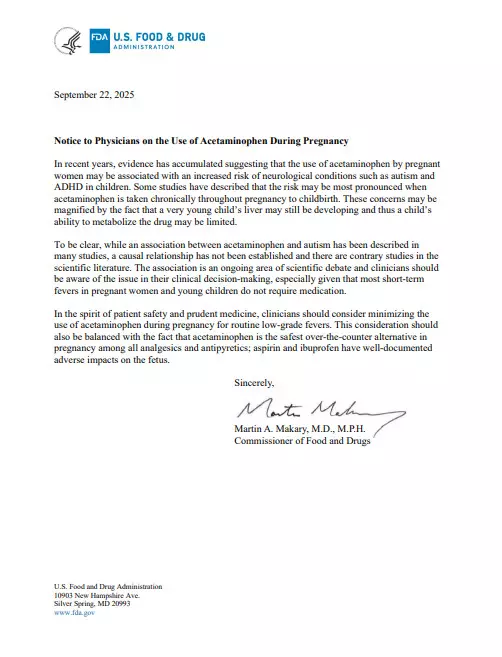
In contrast, scientific studies show that acetaminophen use during pregnancy is not associated with an increased risk of autism. A study published in JAMA Network by Viktor H. Ahlqvist and colleagues reported that using acetaminophen during pregnancy was not linked to an increased risk of autism, ADHD, or intellectual disability in children.
According to the NHS, paracetamol is considered the preferred pain relief option during pregnancy. It is widely used by expectant mothers and is not harmful to the baby.
A Nature Reviews Endocrinology consensus statement indicates that prenatal paracetamol use could impact fetal development and pose health risks. In response, the American College of Obstetricians and Gynecologists reaffirmed that existing guidance remains the same: acetaminophen need not be avoided but should be used carefully and only when necessary.
On September 24, 2025, following a statement by Trump, the World Health Organization (WHO) clarified that there is no conclusive scientific evidence supporting a link between acetaminophen (paracetamol) use during pregnancy and autism. The statement noted,
“The World Health Organization (WHO) emphasizes that there is currently no conclusive scientific evidence confirming a possible link between autism and use of acetaminophen (also known as paracetamol) during pregnancy.
Globally, nearly 62 million people (1 in 127) have autism spectrum disorder, a diverse group of conditions related to development of the brain. Although awareness and diagnosis have improved in recent years, the exact causes of autism have not been established, and it is understood there are multiple factors that can be involved.
Extensive research has been undertaken over the past decade, including large-scale studies, looking into links between acetaminophen use during pregnancy and autism. At this time, no consistent association has been established.
WHO recommends that all women continue to follow advice of their doctors or health workers, who can help assess individual circumstances and recommend necessary medicines. Any medicine should be used with caution during pregnancy, especially in the first three months, and in line with advice from health professionals.
Also, a robust, extensive evidence base exists showing childhood vaccines do not cause autism. Large, high-quality studies from many countries have all reached the same conclusion. Original studies suggesting a link were flawed and have been discredited. Since 1999, independent experts advising WHO have repeatedly confirmed that vaccines—including those with thiomersal or aluminum—do not cause autism or other developmental disorders.
Childhood vaccine schedules are developed through a careful, extensive and evidence-based process involving global experts and country input. The childhood immunization schedule, carefully guided by WHO, has been adopted by all countries, and has saved at least 154 million lives over the past 50 years. The schedule remains essential for the health and wellbeing of every child and every community. These schedules have continually evolved with science and now safeguard children, adolescents and adults against 30 infectious diseases.
Every vaccine recommendation by the Strategic Advisory Group of Experts on Immunization (SAGE), an independent advisory group to WHO, is grounded in rigorous review of evidence and carefully designed to offer the best protection against serious diseases and to be delivered when most needed.
When immunization schedules are delayed or disrupted, or altered without evidence review, there is a sharp increase in the risk of infection not only for the child, but also for the wider community. Infants too young to be vaccinated and people with weakened immune systems or underlying health conditions are at greatest risk.
Autism and neurodevelopmental disorders are among priority mental health and neurological conditions being discussed at the 4th UN High-Level Meeting on NCDs and mental health this Thursday, 25 September. As a global community, we need to do more to understand the causes of autism and how best to care for and support the needs of autistic people and their families.
WHO is committed to advancing this goal working together with partners including autistic-led organizations and other organizations representing persons with lived experience. WHO also stands with people who are living with autism and their families, a dignified community entitled to evidence-based considerations free of stigma.”
Therefore, it can be concluded that the claim is misleading.
What do Doctors say?

Dr Pratiksha Gupta, MBBS MD Obstetrics & Genecology, FIMSA in a conversation with The Medical Dialogues Fact Check Team said, “As a gynecologist, I often meet expectant mothers who are anxious about every little thing they consume during pregnancy.
Paracetamol has been used safely by pregnant women across the world for decades. It is the most trusted medicine for reducing fever and managing mild pain in pregnancy.
So where did the worry come from? A few studies suggested a possible link between paracetamol use in pregnancy and conditions like autism or ADHD. But these studies only showed an association, not a cause. In simpler terms, just because two things happen together doesn’t mean one is responsible for the other. There were many other factors in those studies, including genetics, environment, and the mother’s health, which could have influenced the results.
Trusted health organizations like the American College of Obstetricians and Gynecologists and the FDA continue to recommend paracetamol as the first choice for pain and fever in pregnancy. They are clear that there is no solid scientific proof linking its use to autism. On the other hand, untreated fever during pregnancy can itself be dangerous for both mother and baby, making paracetamol not just safe but necessary in many situations.
If you are pregnant and need to take paracetamol, you can do so without fear. Use it in moderation, only when you need it, and always at the dose your doctor recommends. If you find yourself needing it frequently, it’s a good idea to talk to your doctor to address the underlying problem.
The bottom line is simple: taking paracetamol during pregnancy does not cause autism. It remains a safe and effective medicine for mothers-to-be. So if you have reached for it to ease pain or bring down a fever, you can breathe easy—you have not harmed your baby.”
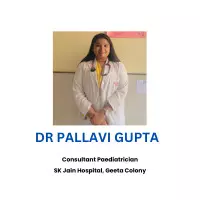
Dr Pallavi Gupta, Consultant Pediatrician, SK Jain Hospital, Geeta Colony further said, “Acetaminophen (Tylenol/Paracetamol) has been used for decades as one of the safest medications to reduce fever and relieve pain during pregnancy. Some observational studies have suggested a possible link with conditions like autism or ADHD, but these studies only show an association, not proof of cause. Many other factors—such as maternal illness, infections, fever itself, genetics, and environment—can influence outcomes, making it misleading to blame acetaminophen directly.
In fact, untreated high fever in pregnancy carries known risks for both mother and baby. Safely controlling fever is important, and acetaminophen remains the best first-line choice recommended by doctors.
Respected health organizations, including the American College of Obstetricians and Gynecologists (ACOG) and the U.S. Food and Drug Administration (FDA), continue to affirm that acetaminophen is safe when used correctly. Their advice is to use the lowest effective dose for the shortest necessary time, which is a principle for all medications during pregnancy.
Parents should feel reassured that current evidence does not support avoiding acetaminophen out of fear of autism. Sensational claims online can cause unnecessary stress. The safest path is balanced, careful use under medical guidance, not avoidance based on misleading claims.”
Although some studies have suggested a possible link between prenatal acetaminophen use and attention-related issues in children, there is no conclusive evidence that it causes autism. The FDA has issued guidelines on its use, but the majority of high-quality research confirms no causal connection between acetaminophen in pregnancy and autism. Leading health authorities, including the NHS, ACOG, and WHO, continue to recommend it as a safe option when used as directed, and large-scale studies consistently show no association.
Therefore, the claim is misleading and overstated.
Powered by WPeMatico
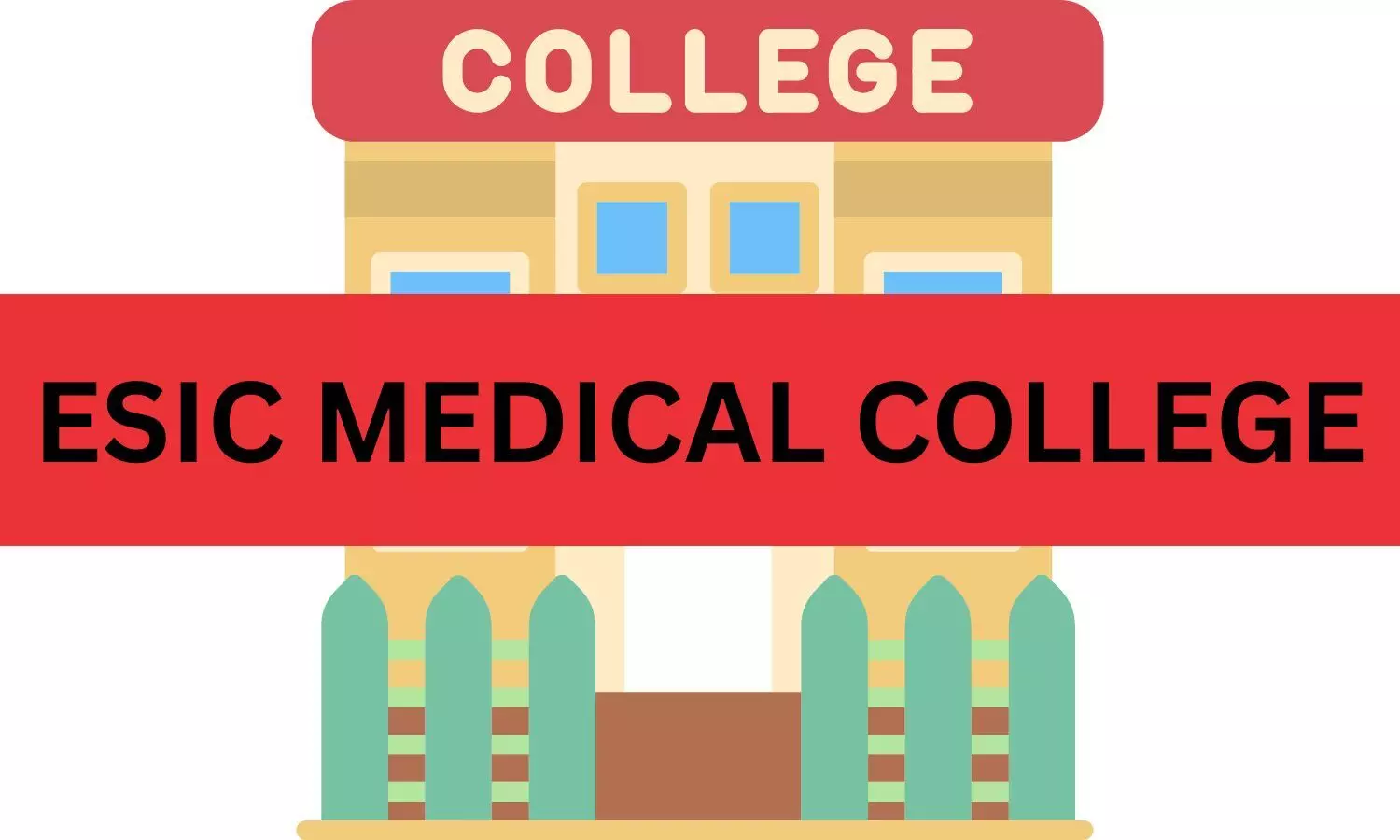
Chennai- Third-year MBBS students of the ESIC Medical College in KK Nagar, Chennai, have raised concerns about their safety after being allegedly coerced into returning to their partially collapsed hostel building.
According to the DTNext report, it is alleged that the third-year students are being forced by the fourth-year seniors to vacate the temporary space and return to the third floor of the damaged building, where the seniors are currently staying.
Speaking to DTNext about this, a college source said, “The seniors want to stay in the single room where the third-year students are currently staying, which is the interns’ hostel. Thus, the seniors are harassing the juniors to shift during the exams. This is not only causing unnecessary anxiety but also posing a security threat.”
Adding to their fears, students reported that a portion of the ceiling of the third-floor restroom also recently collapsed. The rooms on the fourth floor of the original building, where they previously lived, collapsed in May. Students say that despite repeated requests, the college management has not provided any safety assurances, and no structural safety certificate is available for the old building.
According to a DTNext Media news report, internal sources alleged that despite visible structural damage and persistent safety hazards, management and senior students are insisting that they move back to the old building, where a portion of a room on the fourth floor collapsed in May 2025. Fortunately, no injuries were reported during the incident as the room was empty at the time.
Following the incident, more than 20 third-year students were relocated to a nearby building that only offers single-room accommodation. However, the old building, which is now damaged, had triple-sharing accommodation. Although it remains unrepaired and is visibly damaged, a grim reminder of the risks involved.
Powered by WPeMatico

New Delhi: Delhi Chief Minister Rekha Gupta on Thursday launched an online organ donation portal and dedicated 11 new Centralised Accident and Trauma Services (CATS) to the people, promising to induct another 53 such life-saving emergency vehicles in October.
Addressing a gathering at the launch of the 11 new ambulances, CM Gupta said, “The government is committed to improving medical facilities in the city”.
Pointing to Prime Minister Narendra Modi‘s call to eradicate TB from the country, she said the Delhi government has screened 56,000 people and detected nearly 1,000 TB patients in its first 100 days.
Also Read:AIIMS Delhi hosts women’s health camp; CM Rekha Gupta visits
She said that for modern testing of TB, 40 Truenat machines, 10 PathoDetect machines, and 27 handheld X-ray machines have been provided by the Delhi government.
“A digital portal for organ donation has also been launched, and a new DEIC centre has been started at Nehru Bal Chikitsalaya,” she wrote on X.
“Additionally, 11 new CATS ambulances have also been dedicated to public service. All these initiatives will further strengthen Delhi’s health infrastructure and give every citizen the confidence of better and modern treatment,” she said on X, reports IANS.
“Our government has, for the first time, reached health services to every individual through the permanent appointment of nurses, the establishment of hundreds of Ayushman Arogya Mandirs, the arrangement of state-of-the-art testing machines, and large-scale screening campaigns,” she said.
CM Gupta said the government has also launched a portal on which organ donors will be able to register. “We also plan to create a state body to streamline organ donation. It will be modelled on the Central government’s National Organ and Tissue Transplant Organisation (NOTTO), which is a national-level organisation.”
Delhi government Cabinet Minister Pankaj Kumar Singh was also present at the programme.
The Chief Minister said that the launches on Thursday were part of the 75 schemes and welfare projects to be dedicated to the public during the government’s 15-day ‘Seva Pakhwada’ being observed to celebrate PM Modi’s birthday. The Pakhwada is being observed from September 17 to October 2.
Also Read:Over 1,000 doctors to join Aarogya Mandirs in Delhi
Powered by WPeMatico
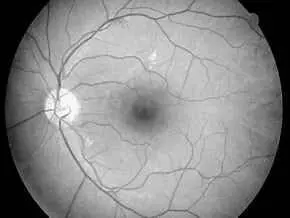
A new study published in the journal of Diabetes Research and Clinical Practice showed that proliferative diabetic retinopathy (PDR) increased cardiovascular risk in more than 2 million people with type 2 diabetes (T2D) in a manner comparable to that of chronic kidney disease (CKD), with risk tripling when both conditions coexisted.
Because type 2 diabetes is strongly linked to an elevated risk of cardiovascular disease (CVD) and death, it is a significant global public health problem. Controlling cardiovascular disease risk factors is essential since it continues to be the primary cause of mortality for people with type 2 diabetes.
Studies with large populations have repeatedly demonstrated that CKD, a significant microvascular consequence of type 2 diabetes, raises the risk of CVD and death. Although its exact role is still unknown, diabetic retinopathy (DR) has also been found to be a risk factor for CVD in people with type 2 diabetes. The relationship between DR and CVD has been the subject of several meta-analyses.
Microvascular and macrovascular problems in diabetic individuals are influenced by age and sex. Notably, a greater risk of microvascular and macrovascular problems is linked to a younger age at diabetes diagnosis. Using a sizable cohort from the Korean National Health Insurance Service (NHIS), this study sought to assess the separate and combined effects of DR and CKD on the risk of CVD and mortality among people with type 2 diabetes. The data from the UK Biobank cohort was then used for external validation.
This research examined T2D patients without a history of CVD from the UK Biobank (n = 21,350) and the Korean NHIS cohort (n = 2,064,406). A composite of nonfatal myocardial infarction, nonfatal stroke, and cardiovascular mortality was the main result. Adjusted hazard ratios (aHRs) for the primary outcome were higher in the Korean cohort for those with PDR (aHR 1.37), CKD (aHR 1.36), and both conditions combined (aHR 2.21), than in those without either condition.
Comparable outcomes were noted in the UK Biobank. With aHRs of 3.28 for those under 40, 1.77 for those between 40 and 64, and 1.29 for those over 65, PDR had the greatest impact on CVD in younger people. Overall, pDR and CKD, both independently and in combination, increase cardiovascular risk in individuals with T2D, particularly among younger age groups. These findings support incorporating PDR into cardiovascular risk assessment and management.
Reference:
Yeon Soo Park, Kyu Na Lee, Bo Kyung Koo, Soo Heon Kwak, Kyung Do Han, Min Kyong Moon., Diabetic retinopathy and chronic kidney disease synergistically increase the risk of incident cardiovascular disease in type 2 diabetes: Insights from two cohort studies., Diabetes Research and Clinical Practice., https://doi.org/10.1016/j.diabres.2025.112373
Powered by WPeMatico
